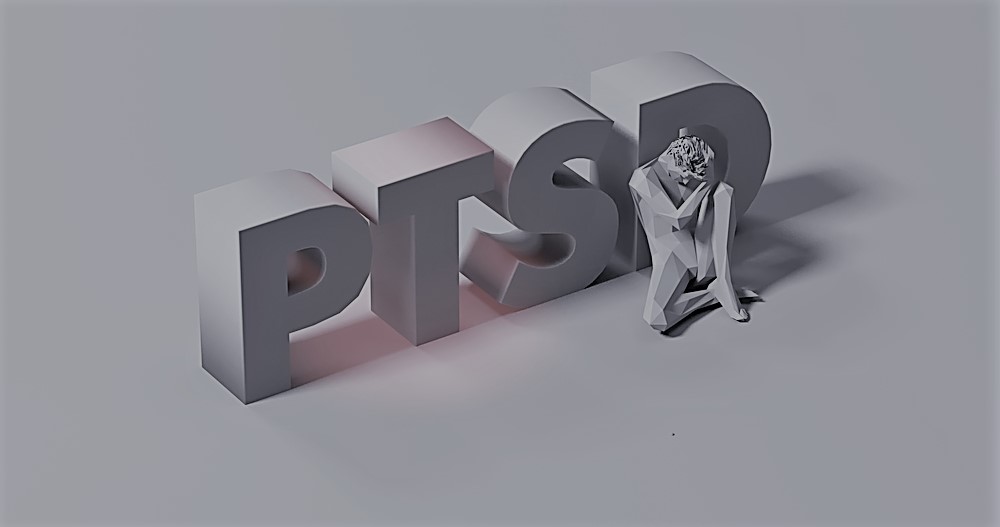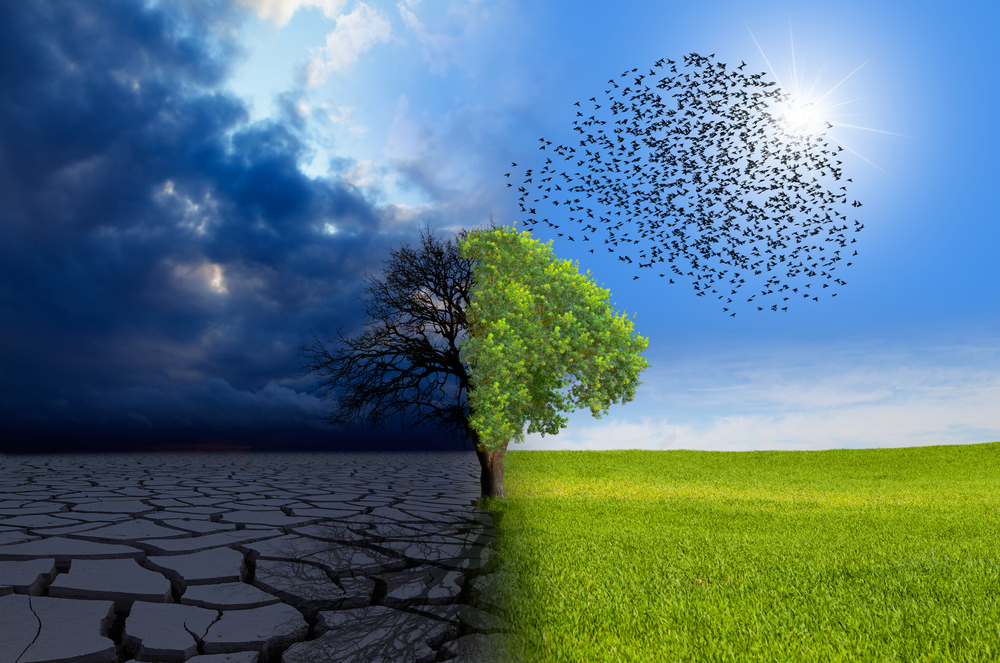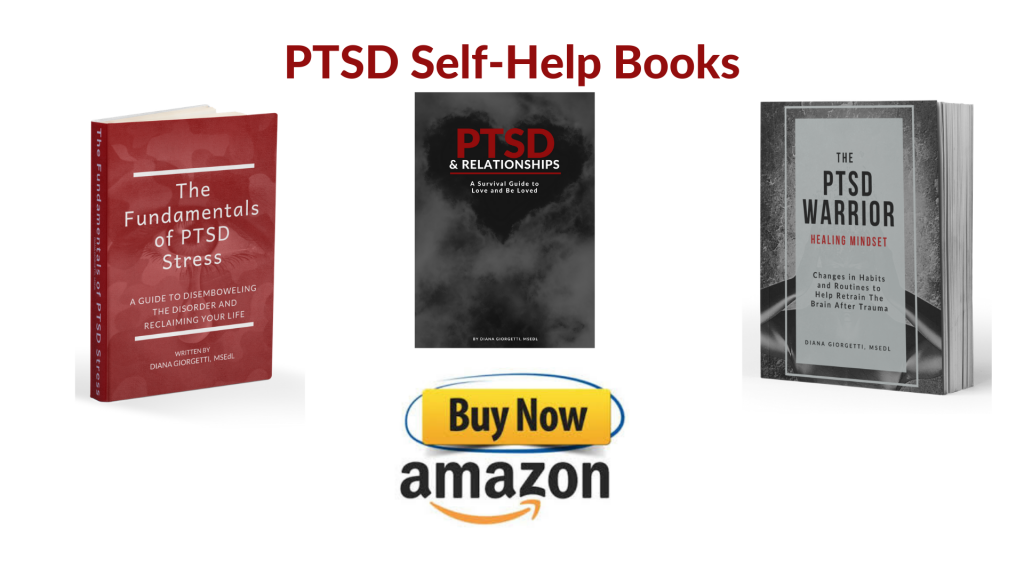It was not until veterans returning from war-zones started developing symptoms of Post-Traumatic StressDisorder (PTSD) that widespread awareness of this debilitating mental health condition became an important topic to address.
Before this ‘trend,’ millions of people who developed this problem after one or more traumatic experiences – unrelated to the military – had daily battles with the symptoms associated with PTSD.
I was one of those people and kept the information to myself, always concerned about being classified into a ‘broken’ group if I disclosed my condition.
I never told anyone I suffered repeated traumatic experiences that left my mind and soul shattered and ravaged my life for years. Only those close to me knew it. Some accepted it, some labeled me, others treated me as a broken pawn.
It was like living in the dark PTSD ages.
But I was fortunate enough to have access to exceptional mental health help and resources, and lucky enough to be a resilient person. This made my journey to recovery a much smoother one.
Unfortunately, it doesn’t work like that for millions of people out there who are struggling to manage this problem and for whom access to reliable and affordable mental health resources is scarce.
More needs to be done to ensure everyone touched by PTSD has access to early intervention and healing resources, but sadly, that’s not currently the case.
PTSD is not easy to live with and unmanaged PTSD symptoms are nearly impossible to deal with.
Millions of people battling PTSD wake up every morning with a stampede of thoughts, fears, and emotions running – sometimes even stomping – through their heads. They don’t wake up feeling safe or in control of their lives, and these feelings don’t go away throughout the day.
They wake up and try to take a deep breath, but it never feels like it’s enough to satiate the breathlessness that PTSD symptoms exert on your life. Yet, many have to push themselves and leave their homes feeling as if they’re walking over broken glass, except the feeling is all over their body.
These are just a few statements about what living with PTSD feels like. This is why intervention, therapy, and access to healing resources is paramount.
For years I was one of these people, struggling to function, yet hiding in plain view.
If you saw me walking down the street you would never think I was diagnosed with a complex form of Post-Traumatic Stress Disorder more than two decades ago.
If you met me at an event or saw me at a restaurant, you would not think of me as someone who had a tough time leaving her home because of a debilitating mental health condition.
If you went scuba diving with me, it would never cross your mind that I am a highly anxious person due to remnants of PTSD symptoms.
And if you found yourself in an elevator with me, you would never think I was someone who had to wake up every day to neutralize brain demons in order to fulfill my obligations and responsibilities, many times unsuccessfully.
But this is who I was before I took responsibility for my healing and my emotions.
For a long time, I lived in fear.
Today I am different. My support system sees one side of me, and my followers see another.
To my family, I am a someone who cannot sit still, frequently restless, constantly worries about everything, often questions her decisions when she is highly stressed out and tends to feel unworthy. The latter was a byproduct of a long-term faulty support system that instead of helping only sought to exert control over me.
To the outside world, I am an outspoken person with a jazzy sense of humor who writes self-help materials for people looking to conquer PTSD, is always trying to help others, loves her kids, her dogs, and is passionate about scuba diving.
To me, I am a passionate human, blunt about my stances – and sometimes statements – about mental health, life, our planet, and countless other things.
Above all, I think people know me because I like to help. Actually, I LOVE to help others.
But until very recently, many people didn’t know I had firsthand experience with PTSD. They probably thought I was crazy or just plain weird.
Regardless of people’s perception of me, for many years I did an outstanding job at creating different disguises to take on the world, to manage the symptoms that ravaged me for years, and to even find humor in the menagerie that my life was.
Living a life where you have to hide your state of mind is exhausting.
Most people with PTSD could not live their lives at the haste that I lived mine. Most people with PTSD do not achieve a high functioning state because they don’t know how to create a custom-made healing system.
But those who are willing commit to their healing and put the work in will get great results.
I am deeply appreciative of the help I received. Without it, I wouldn’t be the person I have become today.
Now, I hope to use everything I have learned, experienced, and managed to overcome to help others reach their healing mindset as well.
But to help others, I have to come clean.
Beneath this seemingly strong and almost responsible individual lies a person who spent years learning to manage nightmares, flashbacks, avoidance issues, hypervigilance, chronic pain, depression, irritability, dissociative episodes, and a myriad of other side effects and symptoms, all courtesy of unmanaged PTSD in my life.
Underneath this mother is a person who experienced repeated violence and abuse at various stages in her life at the hands of others, and who still deals with remnants of the trauma during highly stressful times.
But thankfully those times are infrequent, and my perspective on life is now fully focused on helping others.
I am a survivor of trauma, champion of overcoming symptoms, and conqueror of PTSD.

On good days, I wake up and take on the world like a warrior, without doubts or worries. I know that I am a survivor with ample education, experience, and an uncanny ability to help others. I have a lot to offer to the world, especially to others battling this condition.
I am grateful that today in my life most days are good. But they’re not always perfect.
On the worst days, I still need to make use of the various disguises, coping skills, and techniques I have learned so the world won’t see the remnants of symptoms and how shattering they can be.
PTSD is a monster to deal with. If you are not touched by it, you cannot understand the magnitude of its impact or how debilitating it can be.
Most people are afraid to disclose their condition out of fear of social, family, or even romantic stigma.
While I joked about it in private for a while, it still took me time to “come out of the PTSD closet.” Eventually, I did.
For many years, nobody except a few of my closest friends and family knew about my PTSD, not because I was scared to talk about it or ashamed, but because some of those closest to me were embarrassed and ashamed of my “imperfections.”
I kept it quiet and rarely shared my situation with people. I was too afraid of being labeled, stigmatized, or “not worthy” of my partner (at the time). I was too afraid people will not want to go scuba diving with me because I had PTSD.
This meant that rather than embracing change and cultivating the real support system I needed, I spent years in therapy, “getting fixed” in secret so that I could be “acceptable” to the world that I lived in.
Yes, I was blind and stupid. Trauma can really screw with your head that way, and there are malignant people out there who would take advantage of those who might need a little help or an extra push to manage life.
But PTSD is not something to be ashamed of and anyone can conquer it.
I did and so can you.
All you need is a solid plan of attack and a good support system, even if it consists of only one person.
Today, I actively advocate for others who struggle with this debilitating disorder by helping them achieve a healing mindset through a variety of self-help resources, including my books.
Trauma – and its after-effects like the development of PTSD – is impacting and helping and supporting others is paramount.
The truth is that many people who suffer with PTSD and C-PTSD cannot live normal lives. At least not on their own.
Often, people with high functioning PTSD look calm and normal to others, but internally are consumed by insecurities, uncertainties, worries, and doubts.
I was one of those people.
PTSD ravaged my life for years. I suffered with and battled against this monster. And while access to reliable mental health resources helped, a bad and judgmental support system almost made me believe I was broken beyond repair.
But I broke free. I cultivated the support system I needed and forged a new life where I can be who I need to be.
You can too. Become a PTSD warrior. Take control of your life.

